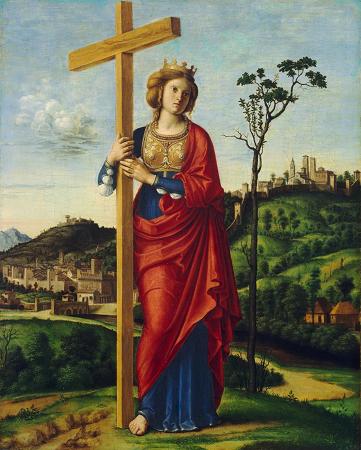James the Less. James the Less is a figure of early Christianity, one of the Twelve chosen by Jesus. He is also called the Minor, the Little, the Lesser, or the Younger, according to translation. He is not to be confused with James, son of Zebedee. He is identified by some as James, son of Alphaeus and as James, brother of Jesus, thought of by Jerome and those who followed him as really the cousin of Jesus. James the Less was traditionally commemorated with St. Philip either on May 1 or May 3 in the Western Christian calendars. In the New Testament, the name James identifies multiple men. James the Less is named only in connection with his mother Mary, who is also the mother of Joseph, who is called Joses by Mark. There are four mentions: Mary, the mother of James and Joseph;. Mary, the mother of James the younger and of Joses;. Mary, the mother of James. This Mary may have been Mary of Clopas, mentioned only in John 19:25. It is unlikely to be Mary the mother of Jesus since she is not identified as Jesus' mother but only called the mother of James the Less and Joseph/Joses. In Matthew 27:56 she is clearly distinguished from the mother of James, son of Zebedee. According to Jerome, James the Less is identified with James the brother of Jesus and with James, the son of Alphaeus. Jerome first tells that James the Less must be identified with James, the son of Alphaeus. No one doubts that there were two apostles called by the name James, James the son of Zebedee, and James the son of Alphaeus. The only conclusion is that the Mary who is described as the mother of James the Less was the wife of Alphaeus and sister of Mary the Lord's mother, the one who is called by John the Evangelist Mary of Clopas, whether after her father, or kindred, or for some other reason. After that, James the Less being the same as James, the son of Alphaeus, Jerome describes in his work called De Viris Illustribus that James the brother of the Lord is the same as James, son of Alphaeus: James, who is called the brother of the Lord, surnamed the Just, the son of Joseph by another wife, as some think, but, as appears to me, the son of Mary, sister of the mother of our Lord Mary of Cleophas of whom John makes mention in his book. Thus, Jerome concludes that James the Less, James, son of Alphaeus and James the brother of Jesus are one and the same person. According to the Golden Legend, which is a collection of hagiographies, compiled by Jacobus de Varagine in the thirteenth century: James the Apostle is said the Less, how well that was the elder of age than was St. James the More. He was called also the brother of our Lord, because I have resembled much well our Lord in body, in visage, and of manner. He was called James the Just for his right great holiness. He was also called James the son of Alphaeus. He sang in Jerusalem the first mass that ever was there, and he was first bishop of Jerusalem. The same work adds Simon Cananean and Judas Thaddeus were brethren of James the Less and sons of Mary Cleophas, which was married to Alpheus. The title,the Less, is used to differentiate James from other people named James. Since it means that he is either the younger or shorter of two, he seems to be compared to one other James. In the lists of the twelve apostles in the synoptic Gospels, there are two apostles called James, who are differentiated there by their fathers: James, son of Zebedee, and James, son of Alphaeus. Long-standing tradition identifies James, the son of Alphaeus, as James the Less. James, son of Zebedee, is then called James the Great. Some propose that Alphaeus was the same man as Cleophas or at least the husband of Mary Clopas. In this regard, Jerome identified James the Less with James, son of Alpheus writing in his work called The Perpetual Virginity of Blessed Mary the following: Do you intend the comparatively unknown James the Less, who is called in Scripture the son of Mary, not however of Mary the mother of our Lord, to be an apostle, or not? If he is an apostle, he must be the son of Alph�us and a believer in Jesus, For neither did his brethren believe in him.
more...



